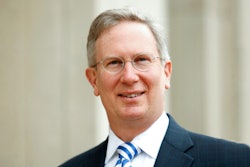PROVIDENCE, R.I.
A Brown University committee investigating the institution’s ties with slavery has recommended the school atone for its past by creating a slave trade memorial, establishing an academic center focused on slavery and justice and, above all, acknowledging the truth about its past.
The 17-member Steering Committee on Slavery and Justice, established in 2003 by Brown University President Ruth Simmons, released its finding on Wednesday on the institution’s Web site.
“We cannot change the past,” says the 106-page report. “But an institution can hold itself accountable for the past, accepting its burdens and responsibilities along with its benefits and privileges.”
Among the school’s responsibilities, the report says, is a commitment to recruit minority students, especially from Africa and the West Indies, the historic points of origin and destination for most of the people carried on Rhode Island slave ships.
Brown was formally chartered in 1764 as the College of Rhode Island. Its founder, the Rev. James Manning, freed his only slave but accepted donations from slave owners and traders, including the Brown family of Providence. One family member, Nicholas Brown Jr., is the university’s namesake.
Dr. James Campbell, the committee chairman and associate professor of Africana studies at Brown University, says the president’s charge to the committee was specific but very broad at the same time.
“We proceeded by consensus and didn’t find it necessary to take votes,” he told Diverse.
Campbell says committee members had a passionate discussion on whether the school should apologize for its ties to slavery.
“An apology certainly matters. I was persuaded by looking around the world and consequences of what an apology brought — in the instance of Germans or the Japanese — and it also brought a lot of opposition. But clearly they mean something. The very passion it provokes, they do mean something,” Campbell says. He adds that the upcoming public forums will help to provide more answers.
The committee report mentions that much of Brown’s endowment came from slave owners’ wealth. The report mentions Henry Laurens, a planter and political leader, who ran the largest slave-trading house in North America in the 1750s. His firm, Austin and Laurens, handled the sales of more than 8,000 Africans. Laurens donated £50 to the College of Rhode Island.
The committee recommends the institution create a center for continuing research on slavery and justice, establish an endowed professorship and fellowships to undergraduate and graduate students, improve retention of a diverse faculty and build a slave trade memorial.
However, the panel did not recommend creating scholarships specifically for Black students nor did it recommend Brown make reparations. Although the “the idea is logical,” the report says it would run against the current school policy of need-based admissions.
The report and Brown’s acknowledgement of its ties to slavery were applauded throughout the academy.
“What Brown has done is a model for any institution, Ivy League or not. There have always been connections between slavey and commerce but universities are uniquely positioned to address it,” says Dr. Joshua Guild, an assistant history professor at Princeton University’s Center For African American Studies.
He adds that Brown should also be applauded for moving deliberately and transparently through public forums.
Dr. Clayborne Carson, professor of history at Stanford University and director of the Martin Luther King Jr. Research and Education Institute, says any step towards dealing with the legacy of America’s racial issue is positive.
“Even if it’s an acknowledgement, it leads to a greater understanding,” Carson says. “The first part of understanding [our past] is having a conversation about it.”
The report is available online at
https://slaveryandjustice.brown.edu/
|
Reader comments on this story: |
|
There are currently 2 reader comments on this story: |
|
“Brown’s committee should be applauded” -Elizabeth R. |
|
“moral leadership” -Mark Whitaker |
© Copyright 2005 by DiverseEducation.com


















